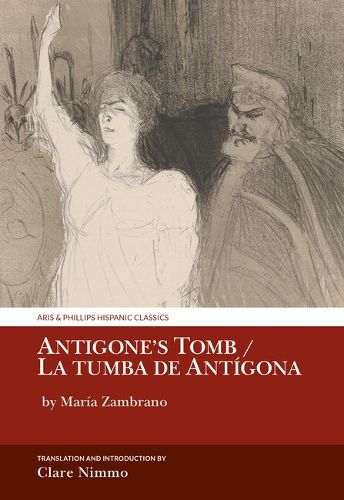Readings Newsletter
Become a Readings Member to make your shopping experience even easier.
Sign in or sign up for free!
You’re not far away from qualifying for FREE standard shipping within Australia
You’ve qualified for FREE standard shipping within Australia
The cart is loading…






The philosopher Maria Zambrano grants Antigone a compelling new voice in her reimagining of Sophocles' tragedy, which she described as 'something quite different that hasn't occurred to anyone'. Written in 1967 from exile, La tumba de Antigona is Zambrano's only play and retells Antigone's story through the prism of the Spanish Civil War. This dramatized 'talking cure' evokes the eponymous hero's experience of solitude, delirium, and passion within the marginal space of her tomb, casting her as the messenger of consciousness for the second half of the twentieth century. Recent studies place Zambrano in the visionary company of women with questing minds such as Hannah Arendt, Simone Weil, and her close contemporary, the Spanish writer Rosa Chacel, whose lives were complicated by fascist conflicts that impelled them to travel across Europe and to the Americas in search of refuge. Placing emphasis on the play as a text for performance, this first English translation (including the author's prologue and a critical introduction) aims to extend interest in this trailblazing reworking of classical myth by this acclaimed Spanish woman writer and encourage further connections within exile and Antigone scholarship.
$9.00 standard shipping within Australia
FREE standard shipping within Australia for orders over $100.00
Express & International shipping calculated at checkout
The philosopher Maria Zambrano grants Antigone a compelling new voice in her reimagining of Sophocles' tragedy, which she described as 'something quite different that hasn't occurred to anyone'. Written in 1967 from exile, La tumba de Antigona is Zambrano's only play and retells Antigone's story through the prism of the Spanish Civil War. This dramatized 'talking cure' evokes the eponymous hero's experience of solitude, delirium, and passion within the marginal space of her tomb, casting her as the messenger of consciousness for the second half of the twentieth century. Recent studies place Zambrano in the visionary company of women with questing minds such as Hannah Arendt, Simone Weil, and her close contemporary, the Spanish writer Rosa Chacel, whose lives were complicated by fascist conflicts that impelled them to travel across Europe and to the Americas in search of refuge. Placing emphasis on the play as a text for performance, this first English translation (including the author's prologue and a critical introduction) aims to extend interest in this trailblazing reworking of classical myth by this acclaimed Spanish woman writer and encourage further connections within exile and Antigone scholarship.